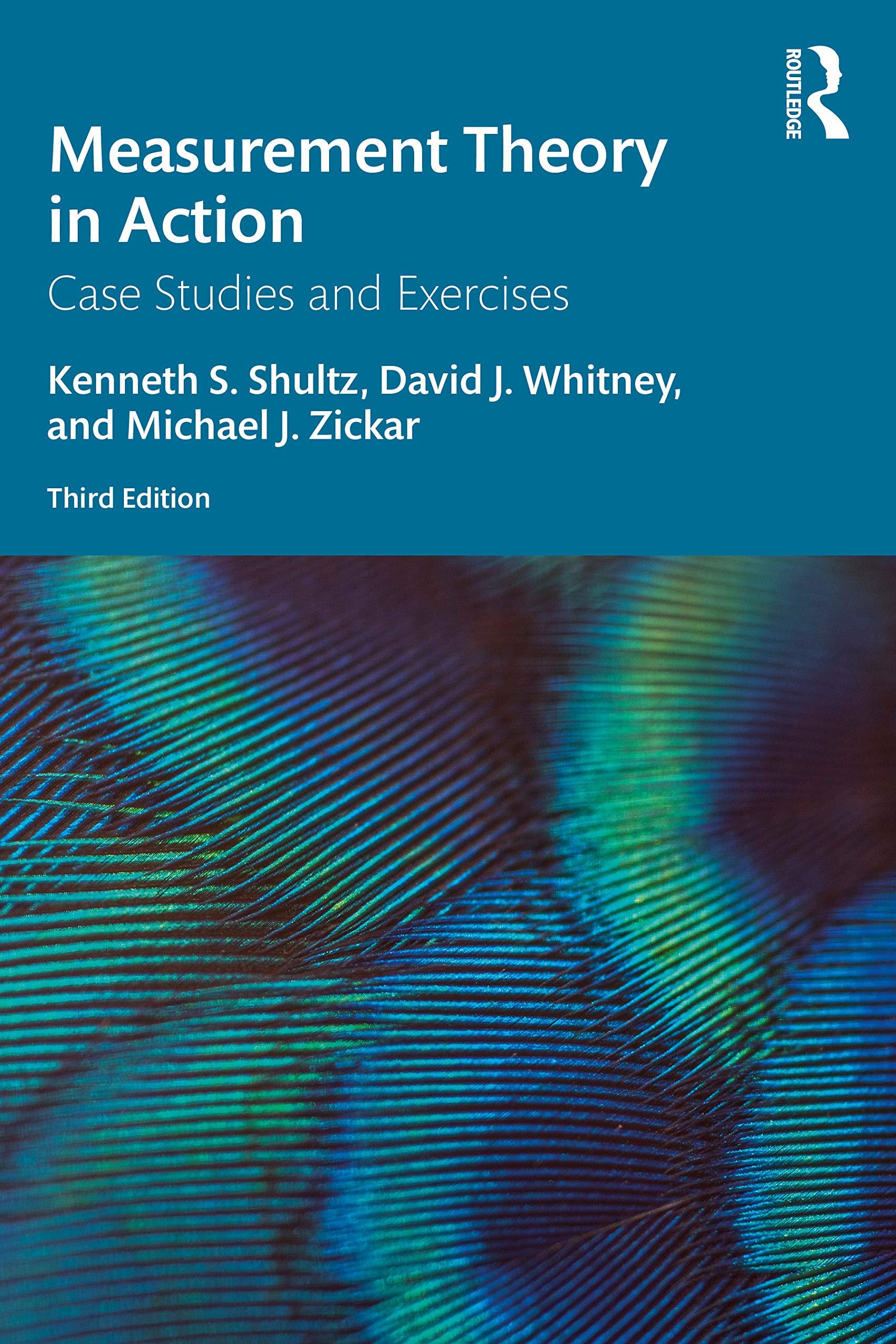Ever since learning about the concept in her psychology class, Khatera had known that she would complete
Question:
Ever since learning about the concept in her psychology class, Khatera had known that she would complete her thesis on the construct of emotional intelligence. Since her initial introduction to the term, she learned that emotional intelligence represented a complex construct consisting of multiple dimensions, including self-awareness, empathy, and an ability to manage emotions. Khatera was proud that, despite the complexity of the construct, she was among the first students in her entire graduate class to clearly specify her research hypotheses. Further, Khatera secretly revelled in her advisor’s praise for developing such a great research idea and for doing it so quickly.
There was just one problem. Because the construct of emotional intelligence was relatively new, few measures had been developed to assess the construct. Further, those that were commercially available were unaffordable, at least on a graduate student’s salary. The vast majority of research on the topic, however, seemed to use one of these commercially available measures of emotional intelligence. Khatera had spent a considerable amount of time investigating ways to measure emotional intelligence at little or no cost to her, and she was beginning to fear that she’d soon face a difficult decision: either pay a considerable amount of money for commercially available measures of emotional intelligence or abandon her thesis idea altogether and start from scratch.
Just yesterday, however, she’d gotten a lucky break. In reviewing research articles, she stumbled across one article that used a measure of emotional intelligence she hadn’t heard of before. Much to her glee, Khatera discovered that the items of the scale were actually printed in the article itself. Khatera sent an e-mail to the author of the article and was ecstatic to receive an immediate response from the author giving her permission to use the scale.
Unfortunately, Khatera’s thesis advisor, Dr. Jennifer Bachelor, seemed far less enthusiastic about the newly discovered scale of emotional intelligence. Indeed, Dr. Bachelor insisted that Khatera produce some evidence of the psychometric properties of the scale before using it in her thesis research. Determined not to delay progress on her thesis any longer, Khatera set out to find that evidence. If she closed her eyes, she could almost see her name emblazoned on the spine of her bound thesis.
Questions
1. What role should cost play in determining an appropriate measure for research?
2. Why would Dr. Bachelor be skeptical of the scale of emotional intelligence that Khatera found?
3. What information in the article should Khatera search for to help address some of her advisor’s concerns?
4. What other steps could Khatera take to gather information regarding the validity of the newly found scale of emotional intelligence?
5. What evidence of validity for a measure is most frequently provided by
(a) Publishers of commercially available tests and
(b) Authors of research scales?
6. What validity evidence would you consider sufficient to use in an important research study such as a graduate thesis?
Step by Step Answer:

Measurement Theory In Action
ISBN: 9780367192181
3rd Edition
Authors: Kenneth S Shultz, David Whitney, Michael J Zickar





